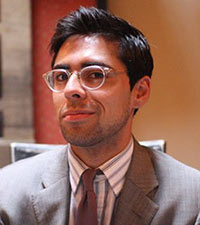
Brian Radzinsky '09
Carnegie Endowment for International Peace, James C. Gaither Junior Fellows Program
As a junior fellow I provided research support to associates and senior associates in the Nuclear Policy Program. These were often discrete research tasks about contemporary debates in nuclear nonproliferation policy, strategy, or energy policy. These tasks were often an education in the development of public policy.
For example, in 2009 President Obama committed his administration to pursuing ratification of the Comprehensive Test Ban Treaty (CTBT), which bans all nuclear explosions on Earth for all time, “immediately and aggressively.” Because treaty ratification requires a two-thirds majority of the Senate, even the Democratic-controlled Senate in 2009 would be unable to ratify the test ban without Republican support. Ratification of the CTBT will depend on either assuaging Republican concerns or denying the validity of Republican arguments against the treaty amongst the general public, but either way, for the foreseeable future, Republican support will be necessary.
In anticipation of a treaty fight in 2010, the president of the Carnegie Endowment was drafting an article for Foreign Affairs that would provide the contemporary case for ratification, taking into account technological developments that would obviate Republican criticisms raised during the 1999 Senate debate. My task was therefore to lay the groundwork for drafting this article by mapping out the universe of arguments, counterarguments, and counter-counterarguments regarding ratification. That is, I was asked to research the 1999 debate, present the debate in an easy-to-examine visual format, update the arguments to fit those made by contemporary players, and then to respond to any points that remain unanswered by referencing, for example, the latest research in verifying the detectability of nuclear explosions across the globe. (One Republican contention is that the treaty is unverifiable and therefore countries such as Russia might “cheat” by clandestinely testing newer and more advanced nuclear weaponry.)
The junior fellowship is also an opportunity for the young and ambitious to get a look into the culture of Washington. Much of political education happens almost by osmosis, by having a closer view to the way that ideas get promulgated or discredited. The echo chamber cliché about life inside the beltway is simplistic, but also incredibly apt, and this comes through in an organization as close to the policy-making apparatus as the Endowment. A plus is that a junior fellowship provides unique opportunities to build relationships with leaders in foreign policy, many of whom are willing to encourage a fellow’s own work.
Previous profile: Colin Chapman '11 | Next profile: Rose Driver '19